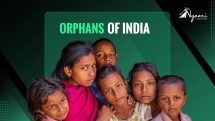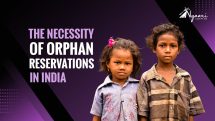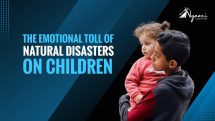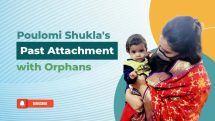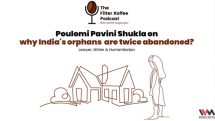I have spent years advocating for orphaned children in India — those without a voice, without a safety net, and often, without access to the most fundamental tool for empowerment: education. Having worked closely with legal policies and on-the-ground realities, I have witnessed how the lack of educational support can keep these children trapped in cycles of poverty and vulnerability. But I have also seen how a single scholarship, a small act of support, can alter the course of a child’s future.
The Harsh Reality of Orphans in India
In India, we have over 2 crore orphaned and abandoned children, yet they remain one of the most overlooked groups when it comes to policy-making. They are not part of any caste or economic category that guarantees them affirmative action, and they often have no guardian to fight for their rights. Education, which should be their fundamental right, becomes a privilege they struggle to attain.
The Power of Scholarships
I remember the case of a young girl I met during my advocacy work. She had lost her parents in an accident and was placed in a shelter home. Despite being exceptionally bright, her dreams of higher education seemed impossible. A single scholarship changed that. She is now a law student, determined to help others like her.
Scholarships are not just financial aid; they are lifelines. They provide stability, a sense of belonging, and most importantly, hope. Yet, many orphaned children remain unaware of the opportunities available to them. Even when scholarships exist, bureaucratic hurdles make them difficult to access.
The Need for Systemic Change
While some states have taken steps to offer reservations for orphans in education and jobs, a nationwide policy is still absent. In 2018, I filed a Public Interest Litigation (PIL) in the Supreme Court, urging the government to recognize orphans as a separate category for affirmative action. In response, the National Commission for Backward Classes recommended that orphans be classified under the Other Backward Classes (OBC) category to ensure better access to education and employment opportunities. But much more needs to be done.
What Can We Do?
- Expand Scholarship Programs – More government and private scholarships should specifically target orphaned children, ensuring they can complete their education without financial strain.
- Simplify Access – Many orphans lack the documentation required for applications. Policies must be revised to accommodate their unique circumstances.
- Awareness & Mentorship – NGOs, institutions, and individuals can play a crucial role in guiding orphans toward available resources.
A Call to Action
Education is not just about books and classrooms—it is about dignity, opportunity, and breaking cycles of deprivation. If you are reading this, I urge you to advocate for educational support for orphans, contribute to scholarship funds, or even mentor a child in need.
A small step in the right direction can change an entire life. I have seen it happen, and I will continue to fight for a future where no child is left behind simply because they were born without parents. — Poulomi Pavini Shukla
